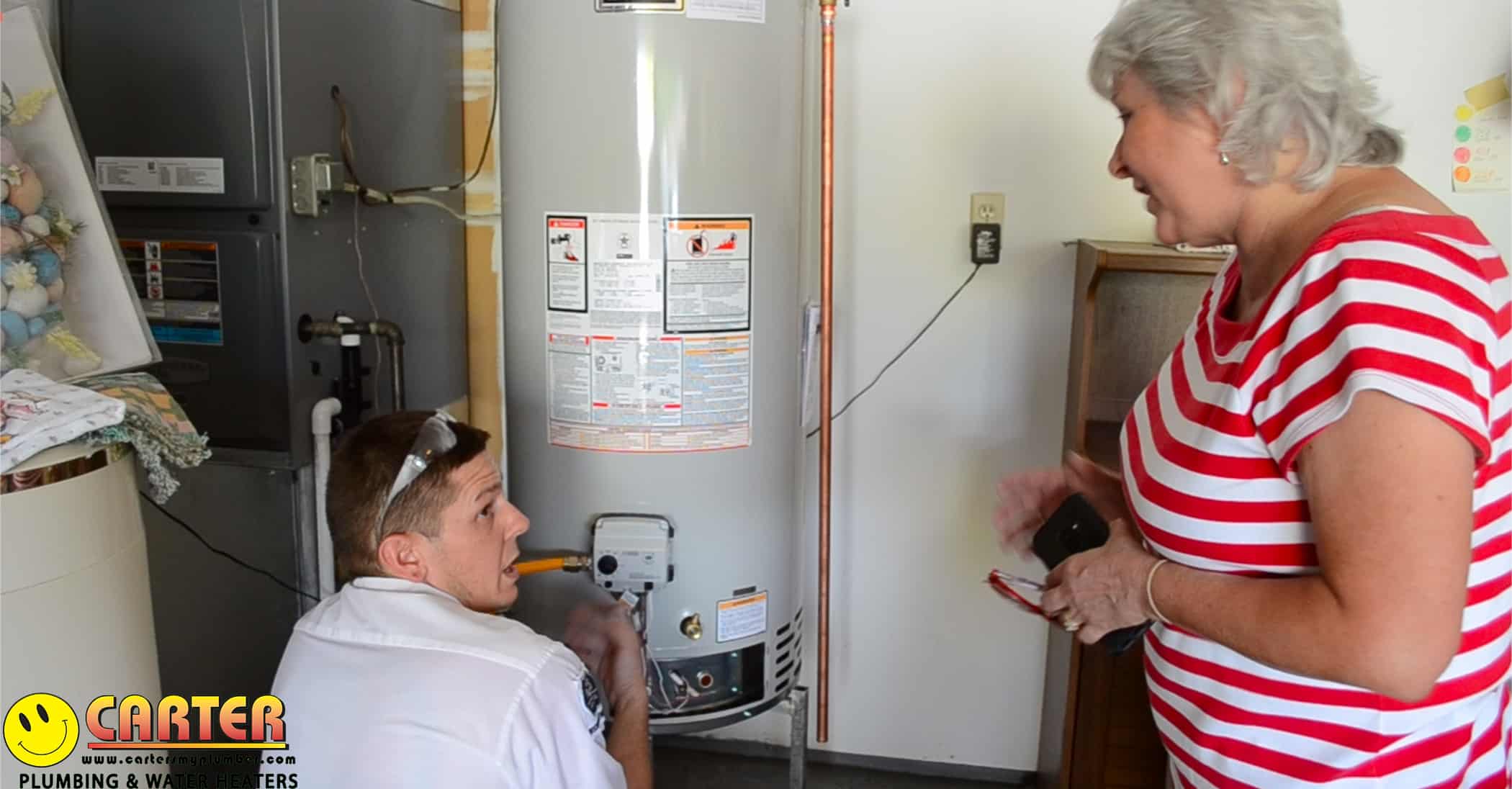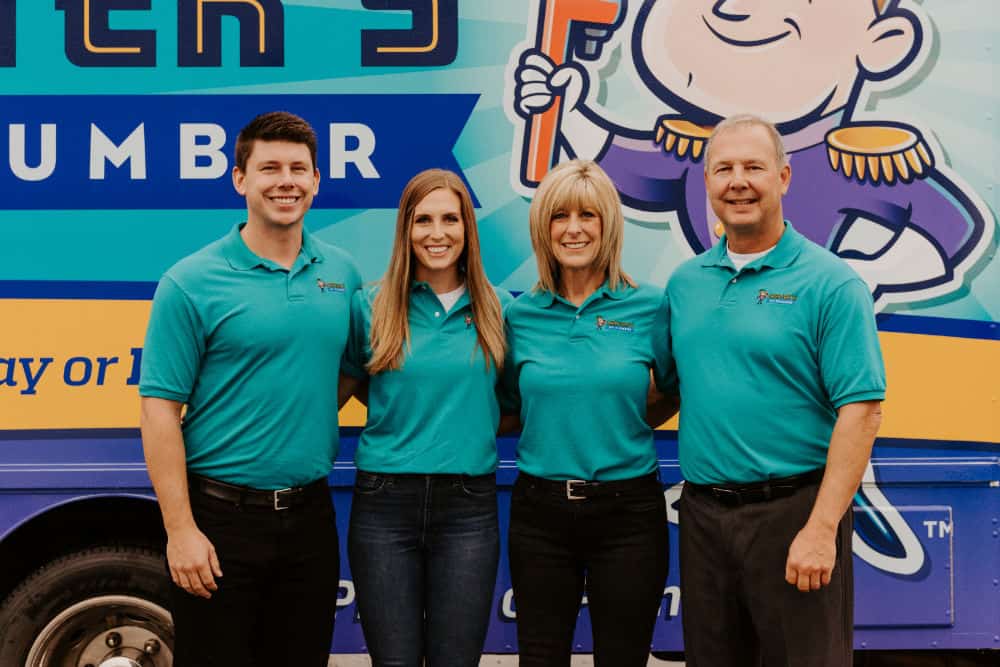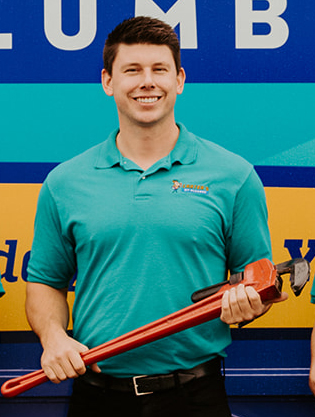Table of Contents
Your water heater is one of those home appliances that’s easy to take for granted. You depend on it to give you comfortable showers, and to ensure you have enough warm water on hand to wash your dishes. And so long as your water heater is working as intended, you probably don’t think about it too much. It’s only when there’s a problem that your water heater suddenly becomes top-of-mind.
One question that’s worth pausing to ponder: About how long does it take for your water heater to heat the water? Or, more to the point… how long should it take for your water heater to heat water?
Let’s take a closer look at that question, beginning with a quick primer on how water heaters function.
Hot Water Heaters 101
There are a number of different types of water heaters: Tank and tankless, electric and gas.
Tank water heaters have a dip tube, which draws cold water into the tank. In a gas water heater, this cold water is heated by a flame, which is located in the center of the tank. This creates exhaust, which is pushed up through the roof of your home.
Tank water heaters that run on electricity employ a heating element, as opposed to a flame; they work in basically the same way, except they do not create exhaust and thus do not need any kind of ventilation.
Tankless heaters actually work in the same way, heating water with either a flame or an electric heating source. The difference is that they heat water on demand, as opposed to storing heated water in a tank.
How Long Does it Take for the Hot Water Heater to Do its Job?
Now, let’s get back to the question at hand: About how long should it take your hot water heater to do its thing?
For gas water heaters, it usually takes on average 30 to 40 minutes for the water in the tank to be completely heated. This may sound like a long time, but remember that the hot water heater stores its heated contents and sends them through the pipes as you need them; so, unless you’re running hot water around the clock, you should generally have water in the tank ready to go. Depending on how well your pipes are insulated, and how close the water heater is to your faucet or shower, it may take a few seconds or a few minutes for the hot water to make it from the tank to where you need it.
Electric water heaters actually take about twice as long to do their job. You can anticipate that your electric hot water heater will need an hour or more to completely heat its tank.
Tankless water heaters are a little different. They work on demand, which means they heat and supply you with water only when you need it. In theory, this should only take a minute or so. Generally, a tankless hot water heater works really well, unless everyone in the house is trying to get hot water at the same time, in which case you may run into some issues.
Does Your Hot Water Heater Take Too Long?
Now, what happens if your hot water heater is underperforming? What steps should you take to address a hot water heater that takes too long to heat water?
Reasons for a Slow Hot Water Heater
Whether we’re talking about a gas heater or an electrical one, there are a few basic reasons why your hot water may be running slow.
- It could be a matter of distance. Remember, the water has to travel from your water heater through the pipes to the faucet or the showerhead. The farther your faucet or shower is from the hot water heater, the longer it’s going to take.
- You may have a low volume restrictor. Some appliances, including showers, have devices installed that restrict the flow of water. This can delay the delivery of hot water. If you think this might be the case with your faucet or shower, that may be a good reason to call a plumber.
- Your water heater may be on its last legs. You may simply have an older hot water heater that’s on the verge of breaking down. The average lifespan for a water heater is around 10 years; if yours is advanced in years and no longer performing the way it should, consider a water heater replacement.
- There could be a buildup of sediment. Over time, sediment builds up inside the tank of your water heater, and blocks the transfer of heat. This results in a water heater that takes longer than it should to supply you with hot water. Thankfully, this problem can usually be resolved by flushing the tank. You can do this yourself, or hire a professional plumber.
- Your water heater could be too small. Another potential problem is that your water heater is just too small for the number of people in your home. It may be time to upgrade to a larger tank size. Or, in some homes, it may actually make more sense to get a second water heater. Ask your plumber about the different options that are available.
Other Options for Speeding Up Your Hot Water
There are a few additional steps you can consider for speeding up your hot water delivery, including the following.
- Get a hot water recirculation system. This will move water more quickly from the heater to the tap. It also recirculates unused hot water back to the tank. Recirculators can be activated either by timer or thermostat, and can often be effective in maximizing the efficiency of your water heater.
- Upgrade to a tankless model. By definition, a tankless water heater is generally going to get you hot water more quickly than a tank model. And as tankless water heaters have become more common, they have also grown more affordable. Ask your plumber about some of the options, and about the benefits of going tankless.
- Consider a larger tank. Again, your problem may simply be that you have a tank that’s sized for two people, but your family has grown to include four or five. If you’d like to get a larger tank, ask your plumber to outline some options.
These are just a few of the ways in which you can potentially get better results from your hot water heater.
About Hot Water Recovery Time
Once you deplete all of the water that’s in your water heater tank, it takes a certain amount of time for the heater to replenish. This is what’s known as the recovery time. (Of course, this is only relevant to tank heaters, not tankless ones).
A number of factors can impact the recovery time of a water heater. These include the size of the tank, the type of fuel, and the temperature of the water that’s being heated. (Naturally, it takes a little longer for your unit to heat exceedingly cold water.)
As you think about your hot water heater and its performance, these are some of the factors for you to bear in mind. And remember, there are almost always options to improve the efficiency of your unit. If you have any questions about your hot water heater’s performance, we welcome you to contact Carter’s My Plumber at any time. We provide water heater repair in Indianapolis, Fishers, Carmel and Greenwood Indiana.





